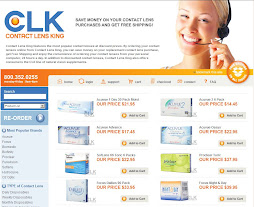As we get older, the search for a ‘fountain of youth’ can become more than just a fanciful notion. There is no such thing, of course, but there are approximations that we have managed to achieve through exercise, diet, and an overall healthy lifestyle to maintain our physical vigor.
But what are our options when it comes to aging eyes? Certain types of changes are inevitable as ‘maturity’ advances upon us, so what can be expected and how do we handle it?
One of the first changes is the onset of presbyopia, the loss of near-focusing ability that occurs around the age of 40. This is the point in life where the need for bifocals causes some distress because the adoption of eyeglasses is equated with the perception of looking older. Fortunately, there are contact lenses that can help presbyopes improve their vision and maintain a youthful appearance. Bifocal and multifocal lenses have become available to address vision correction at all distances.
Dry eye is something that can develop with age, which is a result of decreased level of tear production. Women nearing menopause can experience dry eye as an increase in hormones occurs. Such remedies as artificial tears, a change in medication (some can cause dry eye), and the use of oxygen-permeable contact lenses with lower water content (to minimize rapid evaporation) can battle dry eye symptoms.
Another condition that takes place is the lessening in nighttime vision. Sometimes this is due to the forming of cataracts, vitamin deficiencies and, to a degree, decrease in the muscle strength of the pupil. Since the most common activity affected by this is driving after dark, any measure taken to maximize night vision increases your safety as well as others’. Proper levels of vitamins A and zinc are essential to eye health and are found in yellow and leafy green vegetables (A), beef, poultry, beans and nuts (zinc). Also wear sunglasses during the day (or avoid the sun when planning night driving) as prolonged exposure to sunlight can affect night vision for up to 48 hours.
Other steps that can be taken to cope with aging eyes include further modification of your diet to add foods rich in the alphabet vitamins (the aforementioned A, C, and E); getting plenty of sleep; ensure proper lighting for reading, watching TV, computer use, and other close work; and not smoking. Most importantly, keep those regularly scheduled exam appointments with your eye doctor to stay ahead of potential issues such as macular degeneration, glaucoma, and diabetic retinopathy.
Many equate being young with being active; as we get older, assuming a proactive and responsible stance when it comes to tackling these problems gives you a truly youthful vision when it comes to eye health.
Friday, October 1, 2010
Tackling Eye Problems As We Get Older
Subscribe to:
Post Comments (Atom)





No comments:
Post a Comment